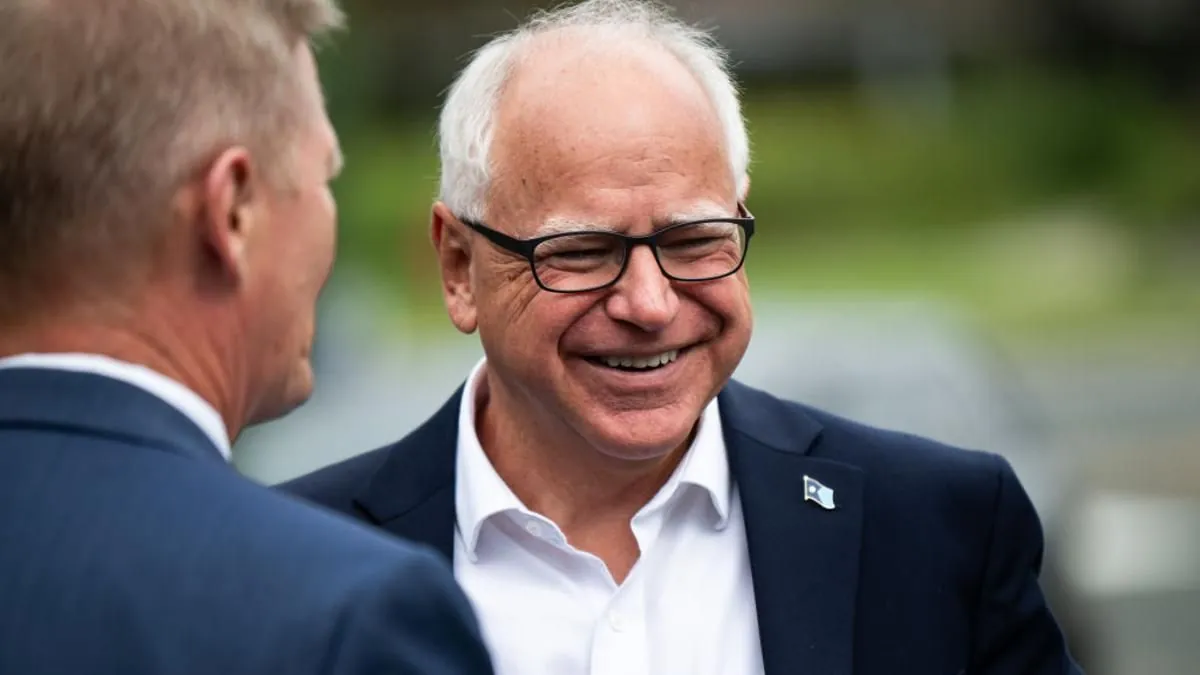Tim Walz, the Democratic vice presidential nominee and current Governor of Minnesota, is facing scrutiny over misleading claims regarding his presence in Hong Kong during the 1989 Tiananmen Square massacre. Multiple news outlets have reported inconsistencies in Walz's statements, revealing a pattern of inaccuracies that Republicans aim to leverage.
The Tiananmen Square protests, which began on April 15, 1989, and were forcibly suppressed on June 4, 1989, resulted in the deaths of several hundred to several thousand civilians. This event, condemned by the Chinese government as a counter-revolutionary riot, led to widespread international condemnation.
According to reports, Walz claimed in a 2019 radio interview that he was in Hong Kong on the day of the massacre. However, publicly available evidence suggests otherwise. Minnesota Public Radio reported that a photograph published on May 16, 1989, shows Walz working at the National Guard Armory in Alliance, Nebraska. Furthermore, an August 1989 news article indicated that Walz was set to depart for China at that time.
Walz's misrepresentations extend beyond the Tiananmen Square incident. The vice presidential candidate has reportedly made inaccurate statements about his family's infertility treatment, his 1995 arrest for drunk driving, and his rank in the National Guard. Additionally, Walz claimed to have visited China more than 30 times, while his campaign later clarified the number was "closer to 15."
Tim Walz served as a U.S. Representative from Minnesota's 1st congressional district from 2007 to 2019 before becoming the 41st Governor of Minnesota in 2019. His longstanding interest in China, including teaching there and returning for his honeymoon, has drawn criticism from some Republicans.
Kyle Jaros, an associate professor of global affairs at the University of Notre Dame, commented on the situation:
"It's become a well-worn tactic to attack opponents simply for having a China line in their resumes."
This controversy highlights the complex relationship between U.S. politicians and their connections to China, especially in light of historical events like the Tiananmen Square massacre. As the 35th anniversary of the tragic event approaches, the accuracy of political figures' statements about their experiences during that time remains a sensitive issue.
The Harris-Walz presidential campaign has not responded to requests for comment on these misrepresentations. As the election draws nearer, it remains to be seen how these revelations will impact Tim Walz's candidacy and the broader Democratic campaign.
